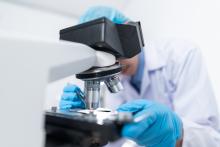Course description
Course organisation
Call for tenders
Annexes to the call for tenders
Results
General contents
The CdDR, with a multidisciplinary approach, will train researchers with expertise in technologies and innovation in the healthcare sector.
Two training curricula are planned:
- Innovative Biotechnologies
Biotechnologies applied to organ transplants; Predictive medicine and new biomarkers in human pathology; Development of innovative diagnostic technologies; Biotechnologies for the characterization, molecular diagnostics, imaging and personalization of oncological therapy and rare diseases; the biology of aging. - Innovative Methodologies in Clinical Research
Technologies for the study of emerging infectious diseases through big data analysis; Innovation and robotic surgery; Regenerative medicine; Bioinformatics and artificial intelligence for the improvement of the NHS; Telemedicine and proximity medicine; the promotion of strategies for active aging; Risk management; Innovative tools to support medical decision-making processes; Governance of innovation in the healthcare sector; Law, healthcare liability and new technologies; BCT and new business models in medicine.
The CdDR will operate as an interdisciplinary work platform to develop health technologies in the preclinical and clinical-therapeutic fields. The 2-curricula design offers parallel visions with a core-business of technological innovation and a semester of multidisciplinary integration. Experiences in application and production sectors are provided by the various public and private partners.
Learning objectives
The doctoral program aims to train the next generation of leaders in research on innovative technologies for health in academic, industrial and clinical settings. It intends to develop an organic and innovative research program that, by combining new technologies with the most recent discoveries in biomedical research, guides the development and clinical translation of technologies for public health.
The educational objectives of the doctoral program are:
- the development of innovative surgical technologies, including the implementation of robotic surgery
- the development of innovative clinical-laboratory diagnostic technologies
- the development of advanced therapeutic technologies and regenerative medicine
- innovative biotechnological approaches for the characterization, molecular diagnostics, imaging and personalization of neoplasm treatments
- biotechnologies applied to organ transplants
- predictive medicine and the development of new diagnostic and prognostic biomarkers applied to human pathologies
- screening, diagnosis and development of innovative therapies for rare diseases
- the development of new medical devices and innovative services, such as bioinformatics and artificial intelligence applications, for the improvement of the National Health System
Particular attention will be paid to the implementation of strategies for the study of aging and for the promotion of active aging.
Educational activities
Expected teachings
- Linguistics
- Informatics
- Management of research, knowledge of research systems and funding systems
- Valorisation of research results and intellectual property
- Statistics: Data Analysis in R
Other educational activities
- Laboratory activities
- Computer improvement
- Linguistic improvement
- Seminars
Admission requirements
All Master's Degrees
Job and professional opportunities
The CdDR is designed to provide a cultural context aimed at training experts who are able to carry out research activities in the university and industrial fields, or to contribute to entrepreneurial initiatives in the health technology sector. The curriculum in “Innovative Biotechnologies” will provide specialized skills required in public and private research centers, hubs and start-ups for technology transfer to companies in the pharmaceutical and biotechnology industry. The curriculum in “Innovative Methodologies in Clinical Research” will train professional figures required in public and private clinical research centers within the national health service and in biomedical companies. It will also train professional figures of cultural contamination between health governance and development tools and technological innovation in the health sector. The trained professional figures will also be able to carry out their activity at the Regional Agencies for Health, the ASL, the IRCCS and the Ministry of Health.
Curricula with educational activities
- Innovative biotechnologies
The curriculum in Innovative Biotechnology is mainly oriented towards basic research or translational.
The research topics developed will be: biotechnologies applied to organ transplants; medicine predictive and new biomarkers in human pathology; the development of diagnostic technologies innovative; biotechnologies for characterization, molecular diagnostics, imaging and personalization of oncological therapy and rare diseases; the study of the physiopathology of the most widespread non-communicable diseases, especially in the geriatric field; the biology of aging. - Innovative methodologies in research
The curriculum in Innovative Methodologies in Clinical Research is mainly oriented towards research clinic.
The research topics developed will be:
Technologies for the study of emerging infectious diseases
through big data analysis;
Innovation and robotic surgery;
Regenerative medicine;
Bioinformatics and artificial intelligence for the improvement of the NHS;
Telemedicine and proximity medicine, the promotion of active ageing strategies;
Risk management;
Innovative tools for support for medical decision-making processes;
Governance of innovation in healthcare;
Law, healthcare liability and new technologies;
BCT and new business models in medicine.







